39 Self-Improvement Tips and Tricks to Help You Become Better
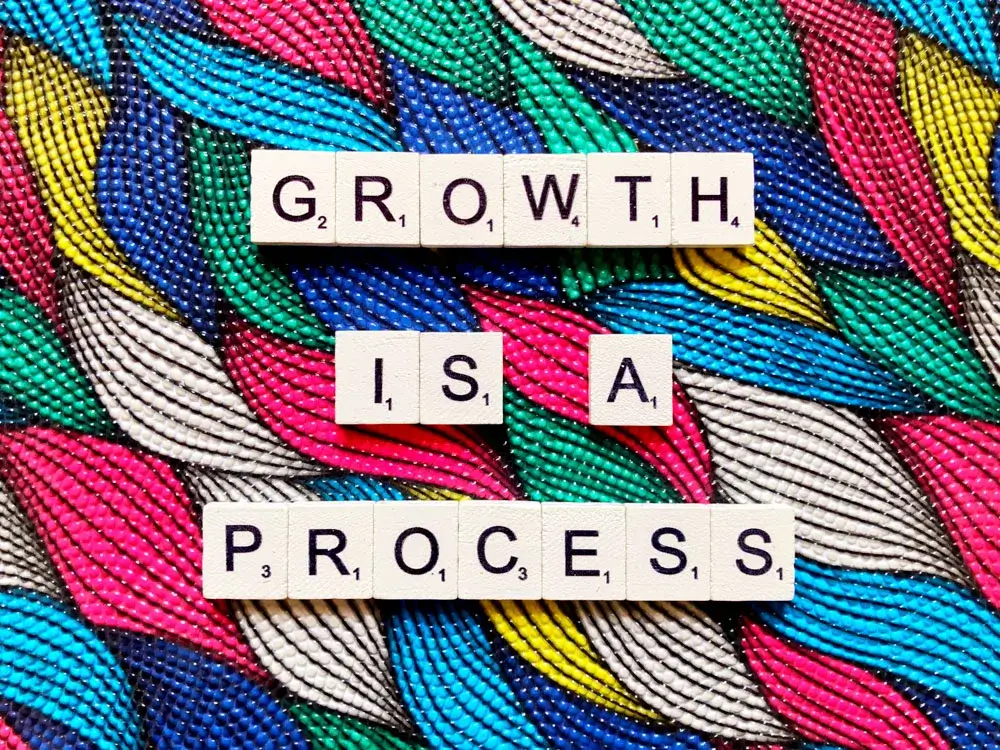
We all want to grow, move forward, and be happy. So, self-improvement is a journey we all embark on at some point in our lives.
Whether you’re aiming to achieve your goals, break a bad habit, or simply become a better version of yourself, the desire to grow and improve is universal.
But let’s be honest. Self-improvement isn’t always easy. It often requires stepping outside your comfort zone, setting self-improvement goals, and staying motivated even when the going gets tough.
But that’s okay! The key is to start with small, manageable steps that lead to continuous self-improvement. And being kind to yourself.
In this article, we’re not just talking about generic advice you’ve heard a thousand times. We’re diving into actionable and unique self-improvement tips and tricks that can help you grow and develop in every area of your life. Not the bad hacks that leave you feeling distressed.
Whether you want to improve your physical and mental health, build better relationships, or enhance your personal growth, these tips will provide you with a solid foundation for a successful self-improvement journey.
Let’s explore how you can improve yourself every day with strategies that are backed by science and easy to implement.
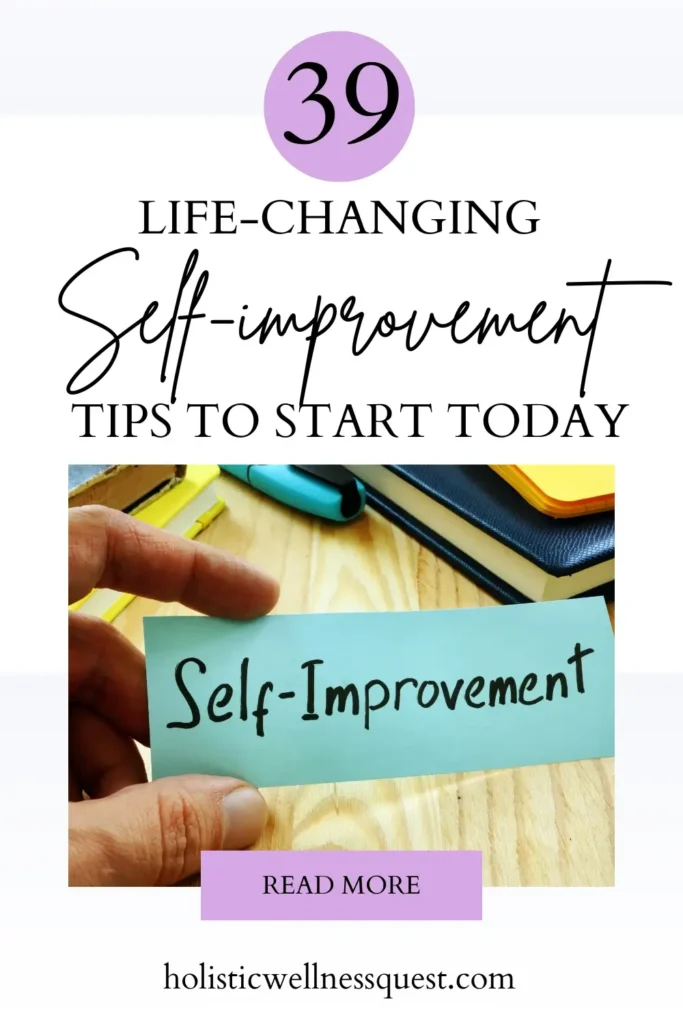
Self-Improvement Tips for Setting a Good Foundation
1: Establish Clear Self-improvement Goals
One of the best ways to kickstart your self-improvement journey is by setting clear and specific goals. It will turn all your wishes into goals.
Think about what you truly want to achieve in every area of your life. Then, it’s better to break these goals down into smaller, more manageable steps. This approach, often referred to as setting SMART goals (Specific, Measurable, Achievable, Relevant, and Time-bound), increases your chances of success. For example, if you want to improve your physical health, consider setting a goal like “walk 10,000 steps every day for 30 days” instead of a vague “get healthier.”
Set clear goals to help you stay motivated. When you know exactly what you’re working toward, it’s easier to stay focused and hold yourself accountable.
Besides, reaching your goals gives you a sense of accomplishment, which further fuels your desire for personal growth.

2: Create a Daily Routine with Good Habits
Change the things you do daily to change your life.
Creating a daily routine is a great way to stay on track with your self-improvement plan.
Routines help you better manage your time, build good habits, and ensure that you’re consistently making progress toward your goals. For instance, start your day with a morning routine that includes activities like meditation, journaling, or exercise. These small steps can set a positive tone for the rest of your day.
A consistent routine also helps you get out of your comfort zone. By dedicating specific times to activities that contribute to your self-development, you’re more likely to stick with them. Over time, these new habits become second nature, making it easier to achieve self-improvement without even thinking about it.
Here is a guide to get you started on creating a balanced daily routine.
3: Prioritize Sleep
A better you must have enough time to unwind.
Sleep is often underestimated when it comes to self-improvement, but it plays a crucial role in both physical and mental health.
Quality sleep helps you stay energized, focused, and ready to tackle the challenges of the day. When you’re well-rested, you’re better equipped to manage stress, make better decisions, and improve your overall well-being.
To prioritize sleep, consider setting a bedtime routine that helps you unwind before bed. Avoid screens, practice mindfulness, or read a self-improvement book. These practices can help you fall asleep faster and wake up feeling refreshed, ready to continue your self-improvement journey.
Check out this detailed article on good sleep hygiene if you are looking to improve the quality of your sleep in your self-improvement journey.

4: Practice Gratitude Daily
Be a better person by being grateful for what you currently have.
Practicing gratitude is a powerful self-improvement technique that can transform your mindset and improve your relationships. When you focus on the positive things in your life, it’s easier to maintain a positive mindset, even in challenging situations.
One simple way to start practicing gratitude is by keeping a gratitude journal. You can start by writing down three things you’re grateful for everyday. This habit can help you better appreciate the good in your life and foster a sense of contentment.
Gratitude also helps you get out of your comfort zone by shifting your focus from what you lack to what you have. This change in perspective can lead to greater happiness and satisfaction, making it easier to stay motivated on your self-improvement journey.

Mental Growth and Emotional Wellbeing Self Improvement Tips
5: Meditate Regularly
Meditation is one of the best ways to cultivate mental clarity and emotional balance. By dedicating just a few minutes each day to mindfulness, you can reduce stress, improve focus, and gain a deeper understanding of your thought patterns. Meditation encourages self-awareness, helping you recognize areas of your life that need improvement.
If you’re new to meditation, start small. Even five minutes a day can make a difference. Over time, you’ll find that meditation becomes a powerful tool in your self-improvement toolkit, helping you navigate life with a calm and centered mind.
6: Continuous Learning
Whether it’s learning a new skill, reading a self-improvement book, or listening to podcasts on personal improvement, there’s always something new to discover.
Personal growth doesn’t stop once you’ve reached a certain milestone. In fact, think of self-improvement as a lifelong journey, and continuous learning is key to staying on the path of self-development.
Consider adding learning to your daily routine. For example, you can dedicate 20 minutes each day to reading or listening to podcasts that inspire you. This habit not only expands your knowledge but also helps you stay motivated and engaged in your self-improvement journey.

7: Manage Stress Effectively
Stress is inevitable. That’s the reality. But how you manage it can make all the difference in your self-improvement efforts. Effective stress management techniques, such as deep breathing, mindfulness, and regular exercise, can help you maintain emotional balance and prevent burnout. A holistic approach to stress management is particularly effective.
It’s helpful to think of stress management as a continuous self-improvement process. The more you practice, the better you become at handling life’s challenges. For example, when you feel overwhelmed, take a moment to practice deep breathing or engage in a quick mindfulness exercise. These small steps can make a big difference in how you feel and function.
8: Practice Emotional Intelligence
Emotional intelligence (EI) is the ability to understand and manage your own emotions, as well as the emotions of others. Developing EI is crucial for building better relationships, making sound decisions, and navigating social situations with ease. Self-awareness, empathy, and effective communication are key components of emotional intelligence.
To improve your EI, start practicing active listening in your conversations. This means fully focusing on the speaker, understanding their perspective, and responding thoughtfully. Over time, you’ll find that these practices help you improve your relationships and make better decisions, both of which are essential for personal growth.
Physical Health and Fitness Self-Improvement Techniques
9: Stay Physically Active
Most successful individuals exercise regulary.
Staying physically active is one of the best ways to improve yourself every day.
And it’s not just about looking better. It’s about feeling better too. Regular exercise is essential for both physical and mental health. When you include exercise into your daily routine, you’re investing in your long-term well-being.
Exercise helps you manage stress, boosts your mood, and increases your energy levels. It’s better to start small if you’re not used to working out.
Consider setting self-improvement goals like walking 10,000 steps a day or doing a 15 to 30 minutes quick workout every morning. These small steps can make a big difference over time.
You’ll also find that staying active helps you get out of your comfort zone. Trying new activities, like yoga, swimming, or weightlifting, can challenge you physically and mentally. As a result, these new habits not only contribute to your physical health but also foster personal growth.
Remember, the key to staying active is consistency. Even on days when you’re not motivated, push yourself to move.

10: Eat a Balanced Diet
You’re exactlt what you eat.
When it comes to self-improvement tips and tricks, eating a balanced diet is crucial. Nutrition plays a significant role in every area of your life. The food you eat affects your energy levels, mood, and overall health.
If you want to improve your life, start by making better food choices. Include a variety of fruits, vegetables, lean proteins, and whole grains into your meals. These foods provide the nutrients your body needs to function at its best.
Think of your diet as part of your self-improvement plan. By choosing nutritious foods, you’re fueling your body for success. Avoid processed foods and sugary snacks, as they can lead to energy crashes and negatively impact your mood. Instead, opt for whole foods that support your physical and mental health.
Start practicing mindful eating and make nutrition a priority in your self-improvement journey.
11: Stay Hydrated
Always consider yourself a houseplant with complex emotions.
Drinking enough water is a simple but very powerful self-improvement technique. Staying hydrated is essential for maintaining both physical and mental health. Water helps your body function properly, from regulating temperature to aiding digestion. It’s also crucial for keeping your energy levels up throughout the day. If you want to improve your daily performance, make sure you’re drinking enough water.
One of the best ways to stay hydrated is to carry a water bottle with you wherever you go. Set a goal to drink at least eight glasses of water each day.
You can also start small by drinking a glass of water first thing in the morning. This simple habit can kickstart your day and keep you on track toward your self-improvement goals.
Staying hydrated is one of those self-improvement tips that’s easy to overlook but has a very big impact on your overall well-being.

12: Take Regular Breaks
We’ve got so much to do. Right?
But here’s the thing, taking regular breaks is essential for avoiding burnout and maintaining productivity. When you’re working toward your goals, it’s easy to get caught up in the hustle. But pushing yourself too hard can actually negatively impact your progress. That’s why it’s important to step back and take a break every now and then. These breaks give your mind and body time to recharge, helping you stay motivated and focused.
Consider using a timer to remind yourself to take short breaks throughout the day. Whether it’s a quick walk, stretching, or simply stepping away from your desk, these small breaks can make a big difference.
Remember, self-improvement isn’t just about working hard. It’s also about working smart. Regular breaks are a great way to stay on track and avoid burnout as you work toward your goals.
Building Positive Relationships
13: Cultivate Strong Connections
Perhaps growing healthy relationships is what your better you needs.
Building positive relationships is a key aspect of personal growth. The people you surround yourself with have a significant impact on your life. Strong connections with family, friends, and colleagues provide support, encouragement, and a sense of belonging.
If you want to improve your life, make an effort to cultivate these relationships. Reach out to loved ones regularly, show appreciation, and spend quality time together.
It’s better to focus on the quality of your relationships rather than the quantity. Deep, meaningful connections are more valuable than having a large social circle.
And make sure you’re investing time and energy in the people who truly matter to you. These relationships can help you grow and improve in ways you might not achieve on your own. They provide a support system that’s essential for reaching your self-improvement goals.

14: Practice Active Listening
Active listening is one of the best ways to improve your relationships and foster personal growth. When you practice active listening, you’re fully present in the conversation. This means putting away distractions, maintaining eye contact, and truly understanding what the other person is saying.
Active listening helps you build trust, deepen connections, and show that you value the other person’s perspective.
To start practicing active listening, focus on the speaker’s words and body language. Avoid interrupting or thinking about your response while they’re talking.
Instead, reflect on what they’ve said and ask clarifying questions if needed. This approach not only helps you better understand others but also improves your own communication skills.
15: Surround Yourself with Positivity
Did you know that you’re actually an average of the five individuals you spend too much of your time with?
So, the people you spend time with can either lift you up or bring you down. That’s why it’s important to surround yourself with positivity.
Positive people inspire you to be your best self, encourage you to pursue your goals, and support you during tough times. If you want to improve your life, take a look at the people around you. Are they helping you grow, or are they holding you back?
Cut off all negative people. They’ll drain you.
It’s better to distance yourself from negative influences and seek out those who bring out the best in you. This might mean spending less time with certain individuals and more time with those who align with your values and goals.
Remember, your social circle plays a significant role in your self-improvement journey. By surrounding yourself with positivity, you create an environment that’s conducive to personal growth and success.
16: Set Healthy Boundaries
Setting healthy boundaries is crucial for maintaining positive relationships and personal well-being.
Boundaries help you protect your time, energy, and emotional health. They also define what’s acceptable and unacceptable in your interactions with others. If you want to improve your relationships, it’s important to set and communicate clear boundaries.
Healthy boundaries allow you to take control of your life and prevent others from taking advantage of you. They also help you avoid burnout by ensuring that you’re not overextending yourself.
Start by identifying areas of your life where you need to set boundaries, such as work, family, or friendships. Then, communicate these boundaries clearly and assertively. Setting boundaries is an essential part of self-improvement and personal development.
And don’t be afraid to say no. That’s okay. Prioritize your own well-being.
Personal Development and Self-Growth
17: Focus on Self-Reflection
Self-reflection is a humbling, yet powerful tool for personal growth. It involves taking a step back to evaluate your thoughts, actions, and progress. By regularly reflecting on your experiences, you can identify areas of your life that need improvement and set goals for the future.
Self-reflection also helps you develop self-awareness, which is essential for personal development.
One of the best ways to practice self-reflection is through journaling. You can set aside time each day or week to write about your thoughts, feelings, and experiences. This practice helps you better understand your motivations, challenges, and achievements.
Over time, self-reflection can lead to significant personal growth as you learn from your experiences and make informed decisions. Take a look at these awesome journaling prompts to get you started.

18: Embrace Change
Change is inevitable. So, embracing it is key to personal development.
Whether it’s a new job, a move to a different city, or a shift in your personal life, change often brings opportunities for growth. If you want to improve yourself, it’s important to be open to change and adapt to new circumstances.
Remember, it’s better to view change as a chance to learn and grow rather than something to fear.
Embracing change can help you get out of your comfort zone and develop new skills. It also allows you to see things from different perspectives, which is essential for personal growth.
Remember, change is a natural part of life, and how you respond to it can significantly impact your self-improvement journey and your overall quality of life.
19: Learn from Failures
No one succeeds without encountering setbacks along the way. No one!
Look at any successful person!
Failure is a natural part of the self-improvement process. It’s important to view failures as learning opportunities rather than stop signs. Each failure teaches you something valuable about yourself, your goals, and your approach.
When you experience a setback, take time to reflect on what went wrong and what you can do differently next time. This process of learning from failures is essential for continuous self-improvement.
Besides, failure helps you develop resilience, adaptability, and a growth mindset. Remember, failure is not the opposite of success. It’s part of the journey. It means you’re making progress.
20: Seek Feedback
Don’t be afraid to ask for constructive criticism from colleagues, friends, or mentors. Their perspectives can offer you a fresh view of your actions and behaviors.
Feedback is a valuable tool for personal growth and self-improvement. It provides you with insights into your strengths and areas for improvement.
Seeking feedback from others can help you better understand how you’re perceived and what you need to work on to achieve your goals. Use this feedback to make informed decisions and set new self-improvement goals.
Remember, feedback is not about criticism. It’s about growth. Embrace it as a tool to help you succeed in your self-improvement journey.
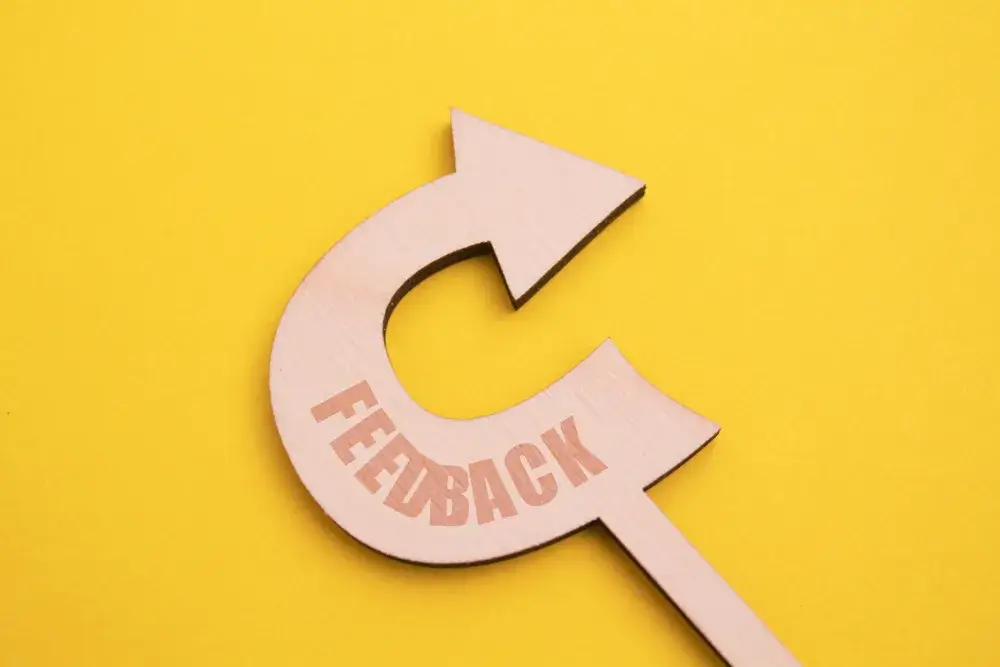
Enhancing Productivity Self-improvement Ideas
21: Practice Time Management
Effective time management is one of the best ways to enhance your productivity and achieve your goals. When you manage your time well, you’re able to focus on the most important tasks and make the most of your day.
But time management isn’t just about cramming as much as possible into your schedule. It’s about being strategic with your time and making sure you’re working on tasks that truly matter.
One of the most effective self-improvement tips and tricks for managing your time is to prioritize your tasks. Start by identifying the most important tasks that will have the greatest impact on your goals. Make sure you’re tackling these tasks first thing in the morning when your energy and focus are at their peak.
It is also helpful to break your day into time blocks. Allocate specific periods for different activities, whether it’s work, exercise, or personal development. This method helps you stay focused and prevents you from wasting time on less important tasks.
Another great way to improve your time management skills is by setting clear and realistic goals for each day. Write down your top three priorities and make sure you’re dedicating enough time to complete them.
Avoid multitasking, as it can reduce your efficiency and increase stress. Instead, focus on one task at a time and give it your full attention.
22: Break Tasks into Smaller Steps
To be honest, large tasks can often feel overwhelming, leading to procrastination and frustration. But by dividing them into smaller, more manageable steps, you can make steady progress without feeling stressed.
When it comes to achieving self-improvement goals, breaking tasks into smaller steps can make a huge difference.
One of the best self-improvement tips for tackling big tasks is to start with small, simple actions. For example, if your goal is to write a book, begin by setting aside 15 minutes each day to write a few paragraphs. Over time, these small efforts will add up and bring you closer to your goal.
Moreover, breaking tasks into smaller steps also helps you stay motivated. Each time you complete a small step, you experience a sense of accomplishment that fuels your desire to keep going.
Think of your self-improvement journey as a series of small steps rather than a giant leap.
This approach not only makes your goals more achievable but also reduces stress and prevents burnout. Besides, it’s easier to adjust your plan and find other ways to stay on track when you’re working on smaller tasks.
So, next time you’re faced with a big task, break it down into bite-sized pieces. This simple technique is one of the best ways to stay productive and achieve self-improvement.
23: Eliminate Distractions
Distractions are the enemy of productivity. They derail your focus, waste your time, and prevent you from reaching your goals. That’s why it’s crucial to eliminate distractions if you want to improve your productivity.
So, whether it’s your phone, social media, or background noise, identifying and minimizing distractions is key to staying on track.
One of the most effective self-improvement tips for eliminating distractions is to create a distraction-free environment. This might mean turning off notifications on your phone, setting boundaries with colleagues or family members, or finding a quiet space to work.
You’ll also benefit from setting specific times to check emails or social media, rather than constantly interrupting your work to check your phone. For help avoiding distractions from your phone, check out this digital detox toolkit.
Another great way to minimize distractions is to use tools like time-tracking apps or website blockers. These tools can help you stay focused on your tasks and reduce the temptation to get sidetracked.
By actively working to eliminate distractions, you’ll improve your ability to concentrate and get more done in less time. This is a crucial step in your self-improvement journey, as it helps you make the most of your time and achieve your goals more efficiently.

24: Use a Planner
Map out your plans. And using a planner is one of the best ways to stay organized and enhance your productivity.
A planner helps you keep track of your tasks, appointments, and goals, ensuring that nothing falls through the cracks. It also provides a visual representation of your time, making it easier to prioritize and manage your day.
One of the most valuable self-improvement tips is to make planning a daily habit.
Try this. Every morning, take a few minutes to review your schedule and set your priorities for the day. And make sure you’re allocating enough time for your most important tasks and leaving room for breaks and self-care.
A planner can also help you track your progress toward your goals. Whether it’s a physical planner or a digital one, use it to jot down your accomplishments and reflect on what’s working and what’s not.
Another benefit of using a planner is that it helps you stay motivated. By seeing your tasks and goals laid out in front of you, you’ll feel more in control of your time and more driven to make progress.
You may not realize it, but it is also easier to hold yourself accountable when you have a clear plan in place.
So, if you’re looking for a simple yet effective way to boost your productivity, start using a planner. It’s a great way to stay organized and on track with your self-improvement goals.
Financial Wellness Self-Improvement plan
25: Create a Budget
Creating a budget is one of the most important self-improvement tips for achieving financial wellness. A budget helps you manage your money effectively, ensuring that you’re spending within your means and saving for the future.
It’s better to know exactly where your money is going so you can make informed decisions about your finances.
One of the best ways to create a budget is to start by tracking your income and expenses. This will give you a clear picture of your financial situation and help you identify areas where you can cut back.
Make sure you’re allocating a portion of your income to savings and investments, to build wealth over time. A budget also helps you avoid unnecessary debt, as you’re more likely to live within your means when you have a plan in place.
Besides, using a budget is a great way to stay motivated and on track with your financial goals. It helps you prioritize your spending and ensures that you’re putting your money toward the things that matter most. You’ll be stunned at how much you throw away without thinking.
By creating a budget and sticking to it, you’ll be better equipped to achieve financial stability and grow your wealth over time. This is an essential step in your self-improvement journey, as financial wellness is a key aspect of overall well-being. Some argue that budgeting the most important aspect.
26: Save and Invest Wisely
Saving and investing wisely is crucial for achieving long-term financial security. If you want to improve your financial situation, it’s important to develop good saving habits and make smart investment choices.
Saving money not only provides a safety net for unexpected expenses but also allows you to invest in opportunities that can help you grow your wealth.
One of the best self-improvement tips for saving is to automate your savings. Set up automatic transfers to your savings account each month, so you’re consistently putting money aside without even thinking about it. Remember to set specific savings goals, such as building an emergency fund or saving for a big purchase. These goals will help you stay motivated and focused on your financial priorities.
When it comes to investing, it’s better to start small and gradually increase your investments as you become more comfortable.
So, consider diversifying your investments to reduce risk and maximize returns. This might include investing in stocks, bonds, real estate, or retirement accounts.
By saving and investing wisely, you’ll be better prepared for the future and more likely to achieve your financial goals. Remember, financial wellness is a key component of self-improvement, and it’s never too early to start planning for your future.
27: Avoid Unnecessary Debt
Learn to live within your means. Avoiding unnecessary debt is essential for maintaining financial stability and achieving your self-improvement goals. Debt can be a major obstacle to financial wellness, as it often comes with high-interest rates and can quickly spiral out of control.
If you want to improve your financial situation, it’s important to live within your means and avoid taking on debt that you can’t afford to repay.
One of the most effective self-improvement tips for avoiding debt is to practice mindful spending. Before making a purchase, ask yourself if it’s something you truly need or if it’s just a momentary desire.
Always think about the long-term consequences of taking on debt, especially if it’s for something that doesn’t contribute to your overall well-being.
Another great way to avoid debt is to pay off your credit cards in full each month. This prevents you from accumulating interest and keeps your debt under control.
Additionally, emergencies happen to everyone. So, create an emergency fund, which can help you cover unexpected expenses without resorting to credit.
By avoiding unnecessary debt, you’ll be in a better position to achieve financial wellness and stay on track with your self-improvement journey.
28: Educate Yourself on Finances
Educating yourself on finances is one of the most important self-improvement tips for achieving long-term financial success. The more you know about managing your money, the better equipped you’ll be to make smart financial decisions. Whether it’s learning about budgeting, investing, or saving for retirement, gaining financial knowledge is crucial for your overall well-being.
One of the best ways to educate yourself on finances is to read books, listen to podcasts, or take online courses on personal finance. These resources can provide you with valuable insights and practical tips to help you manage your money effectively.
It is also important to stay informed about current financial trends and market conditions, as this knowledge can help you make informed investment decisions.
It’s better to start small and gradually build your financial knowledge over time.
Focus on specific aspects of personal finance that are most relevant to your situation, such as debt management, retirement planning, or investing. By educating yourself on finances, you’ll be better prepared to achieve your financial goals and create a secure future for yourself and your family.
Remember, financial wellness is a key component of self-improvement, and the more you learn, the more you’ll grow and improve in this area of your life.
Cultivating Creativity
29: Explore New Hobbies to Improve Yourself Every Day
Exploring new hobbies is a great way to cultivate creativity and enhance your self-improvement journey.
Hobbies allow you to step outside your comfort zone, try new things, and develop new skills. They also provide a much-needed break from the routine of daily life, giving you the opportunity to relax and recharge.
One of the best self-improvement tips for exploring new hobbies is to start with something that interests you. Whether it’s painting, gardening, or learning a new instrument, choose a hobby that excites you and sparks your curiosity.
It is necessary to try out different hobbies until you find one that you’re passionate about. Hobbies are a great way to stay motivated and engaged in your self-improvement journey, as they provide a creative outlet and a sense of accomplishment.
Think of hobbies as a form of personal growth. They allow you to learn new things, develop new habits, and expand your horizons.
Besides, hobbies can lead to new friendships and social connections, further enhancing your personal development.
So, if you’re looking for ways to better yourself, consider exploring new hobbies as part of your self-improvement plan.
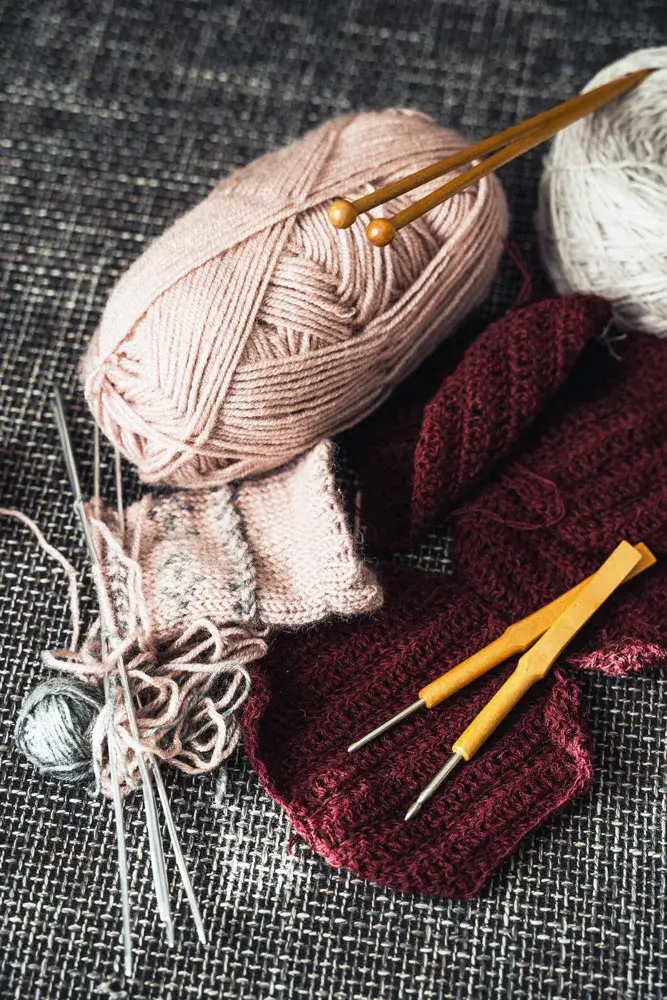
30: Practice Mind Mapping
Mind mapping is a powerful tool for brainstorming and organizing your thoughts. It’s a great way to enhance creativity and boost your productivity. When you practice mind mapping, you create a visual representation of your ideas, making it easier to see connections and generate new insights.
One of the best self-improvement tips for practicing mind mapping is to start with a central idea or goal and then branch out into related topics. For example, if you’re working on a project, use mind mapping to break down the tasks into smaller steps. This technique helps you better understand the relationships between different aspects of the project and identify potential challenges.
Mind mapping is also a great way to stay motivated and focused on your goals. By visually organizing your thoughts, you’ll find it easier to stay on track and make progress.
31: Try Journaling
Journaling is one of the most effective self-improvement techniques for enhancing creativity and fostering personal growth. Writing down your thoughts, ideas, and experiences allows you to reflect on your progress and gain new insights. It’s also a great way to explore your emotions, develop self-awareness, and improve your mental health.
One of the best self-improvement tips for journaling is to make it a daily habit. Set aside time each day to write about your thoughts, goals, and experiences. You don’t need to write a lot—just a few sentences can make a big difference. Journaling helps you better understand your thought patterns, identify areas of your life that need improvement, and track your progress over time.
Another great way to enhance your journaling practice is to use prompts. For example, you might start with questions like “What did I learn today?” or “What am I grateful for?” These prompts can help you focus on specific aspects of your life and gain deeper insights. Here are more prompts to get you started on your journaling journey. By incorporating journaling into your self-improvement plan, you’ll be better equipped to achieve your goals and grow as an individual.

32: Take Inspiration from Others
Taking inspiration from others is a powerful way to fuel your creativity and enhance your self-improvement journey. Learning from the experiences and achievements of others can provide you with new ideas, motivation, and a fresh perspective on your goals. Whether it’s reading a self-improvement book, listening to podcasts, or following the work of influential people, there’s always something to learn from others.
Surround yourself with positive influences. Seek out mentors, role models, or peers who inspire you and challenge you to grow. Study the habits and strategies of successful people. For example, if you want to improve your productivity, you might learn from the time management techniques of high achievers.
It’s better to view others as sources of inspiration rather than comparison. Remember, everyone’s self-improvement journey is unique, and what works for one person may not work for another. By taking inspiration from others, you can find new ways to better yourself and achieve your goals. This approach not only boosts your creativity but also helps you stay motivated and engaged in your self-improvement journey.
Building Discipline and Consistency for Personal Development
33: Start with Small Good Habits
When it comes to building discipline and achieving your self-improvement goals, starting with small habits is one of the best ways to make lasting change. It’s helpful to think of these small habits as the foundation of your self-improvement journey. Rather than overwhelming yourself with big changes, focus on taking small, manageable steps that you can consistently stick to.
For example, if you want to improve your physical and mental health, start with something simple, like drinking a glass of water every morning or taking a 10-minute walk each day. These small steps might seem insignificant, but they’re powerful. Over time, they become part of your routine, making it easier to incorporate more good habits into your life. The key is to start small and build momentum. As James Clear discusses in his self-improvement book Atomic Habits, small changes can lead to significant improvements over time.
By focusing on small habits, you’ll find that you’re more likely to stick with them, which is crucial for long-term success. It’s better to commit to something you can do consistently than to set yourself up for failure with overly ambitious goals. Remember, self-improvement is a journey, not a race. Start small, stay consistent, and watch how these small habits help you grow and improve every day.
34: Track Your Progress
Tracking your progress is essential for staying motivated and ensuring that you’re moving toward your goals. It’s one of the most effective self-improvement tips and tricks because it allows you to see how far you’ve come and identify areas where you need to improve. Whether you’re working on developing new habits, improving your relationships, or reaching a specific goal, tracking your progress helps you stay on course.
One of the best ways to track your progress is by using a journal or a habit-tracking app. Write down your goals, the habits you’re working on, and your daily progress. This not only helps you stay accountable but also provides a visual reminder of your achievements. Remember to review your progress regularly. Set aside time each week to reflect on what’s working and what’s not. This self-awareness is key to making adjustments and staying on track.
Tracking your progress is also a great way to stay motivated. Seeing your achievements, no matter how small, can boost your confidence and encourage you to keep going. It’s better to celebrate these small wins than to focus solely on the end goal. Remember, every step you take brings you closer to achieving your self-improvement goals. So, make sure you’re tracking your progress and using it as a tool to help you grow and develop.

35: Stay Consistent
Consistency is the cornerstone of any successful self-improvement plan. It’s not about how quickly you can achieve your goals, but about how consistently you work toward them. Staying consistent with your habits, routines, and goals is what ultimately leads to lasting change. It’s one of the most important self-improvement tips because without consistency, even the best plans can fall apart.
To stay consistent, establish a routine that you can stick to. Whether it’s a morning routine that sets the tone for your day or a nightly reflection session, having a consistent schedule helps you stay on track.
Consistency also requires discipline. There will be days when you don’t feel like sticking to your habits or working toward your goals, and that’s okay. What matters is that you push through those moments and stay committed to your self-improvement journey. Remember, the key to success is not perfection, but persistence.
36: Hold Yourself Accountable
Accountability is a powerful motivator when it comes to achieving your self-improvement goals. It’s easy to let things slide when no one is watching, but holding yourself accountable ensures that you stay on track. There are several self-improvement techniques you can use to maintain accountability, and one of the best is to share your goals with others.
When you tell someone about your goals, whether it’s a friend, family member, or mentor, you’re more likely to stay committed. Additionally, have someone who can offer support, encouragement, and feedback along the way. Another great way to hold yourself accountable is to set regular check-ins with yourself. Use a calendar or planner to schedule these check-ins and review your progress.
Think of accountability as a partnership between you and your goals. By holding yourself accountable, you’re taking responsibility for your success. This practice helps you develop discipline and consistency, which are crucial for long-term self-improvement. Remember, holding yourself accountable is not about being hard on yourself; it’s about staying committed to your self-improvement journey and doing what it takes to achieve your goals.
Finding Purpose and Passion
37: Identify Your Passion
Finding your passion is one of the most fulfilling aspects of self-improvement. When you’re passionate about something, it gives you a sense of purpose and direction in life. However, discovering your passion isn’t always easy. It often requires exploring different activities, trying new things, and stepping outside your comfort zone. But it’s worth the effort because once you find your passion, it can transform your life.
One of the best tips for identifying your passion is to start by reflecting on what makes you feel most alive. What activities bring you joy? What topics do you love to learn about? Or, what makes you lose track of time? These are often clues to your true passion. Explore new hobbies, take courses, or listen to podcasts on topics that interest you. The more you expose yourself to different experiences, the more likely you are to discover what truly excites you.
Approach this process with an open mind and a willingness to experiment. Don’t be afraid to try something new, even if it’s outside your comfort zone. Remember, finding your passion is a journey, and it’s okay if it takes time. What matters is that you’re actively seeking out what makes you happy and fulfilled. Once you identify your passion, you can start aligning your life with it, which brings us to the next tip.
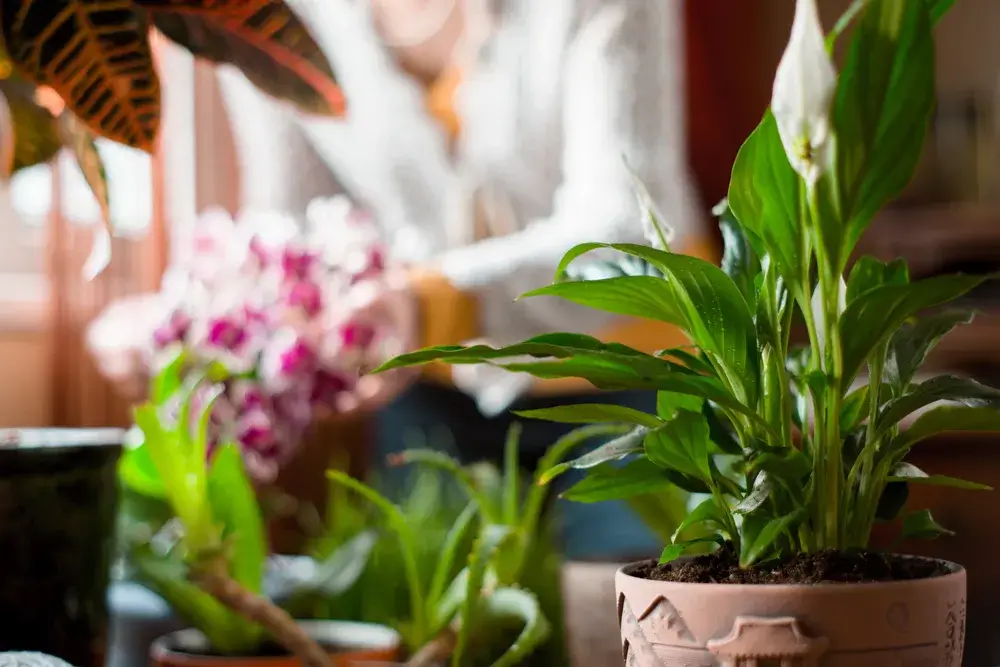
38: Align Your Life with Your Values
Living a life that’s aligned with your values is key to finding fulfillment and achieving self-improvement goals. When your actions are in harmony with your core beliefs, you experience a greater sense of purpose and contentment. But aligning your life with your values requires self-awareness and a commitment to making choices that reflect what’s truly important to you.
One of the most effective self-improvement techniques for aligning your life with your values is to start by identifying those values. Take some time to reflect on what matters most to you. Is it honesty, compassion, personal growth, or family? Once you’ve identified your core values, evaluate your current life to see if it aligns with them. Are you living in a way that honors these values, or are there areas where you could improve?
Think of your values as a compass that guides your decisions and actions. When faced with a choice, ask yourself if it aligns with your values. If it does, you’ll likely feel more at peace with your decision. If it doesn’t, consider finding other ways to stay true to your values. By living in alignment with your values, you’ll find that you’re more satisfied with your life and more motivated to pursue your self-improvement goals.
39: Practice Mindfulness
Mindfulness is a powerful practice that helps you stay connected to your purpose and passion. It involves being fully present in the moment, without judgment, and with an open heart. When you practice mindfulness, you become more aware of your thoughts, feelings, and actions, which is essential for self-improvement and personal growth.
One of the best self-improvement tips for practicing mindfulness is to incorporate it into your daily routine. You don’t need to spend hours meditating; even a few minutes of mindfulness each day can make a difference. Start by focusing on your breath, observing the sensations in your body, or simply paying attention to your surroundings. These small steps can help you develop greater self-awareness and a deeper connection to your purpose.
Mindfulness also helps you better understand your thought patterns and how they influence your actions. By practicing mindfulness, you can identify negative thought patterns or bad habits that might be holding you back from achieving your self-improvement goals. You’ll also find that mindfulness helps you approach challenges with a calm and focused mind, which increases your chances of success.
It’s better to practice mindfulness consistently, even if it’s just for a few minutes each day. Over time, you’ll find that this practice helps you live more intentionally, stay connected to your purpose, and improve yourself every day. Mindfulness is not just a tool for relaxation; it’s a powerful self-improvement technique that can transform your life.

Conclusion
In conclusion, self-improvement is a journey that requires discipline, consistency, and a deep connection to your purpose and passion. By starting with small habits, tracking your progress, and staying consistent, you can build a solid foundation for personal growth. Holding yourself accountable and aligning your life with your values ensures that you’re living a life that’s true to who you are and what you believe in.
Finding your passion and practicing mindfulness are key components of this journey, helping you stay connected to what truly matters. These self-improvement tips and tricks are not just about making changes—they’re about creating a life that’s fulfilling, meaningful, and aligned with your deepest values. So, start practicing these tips today, and remember that self-improvement is a continuous process. With the right mindset and techniques, you can achieve your goals, improve yourself every day, and live the life you’ve always wanted.
